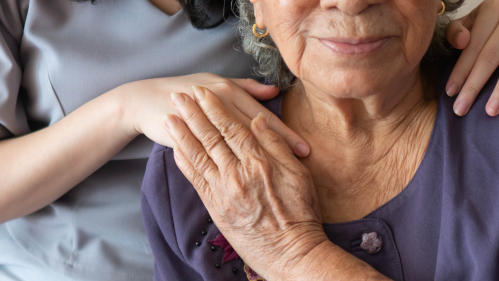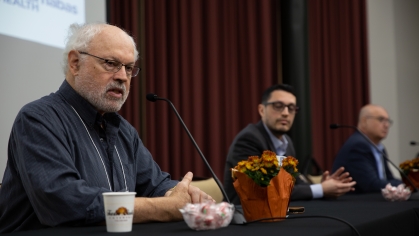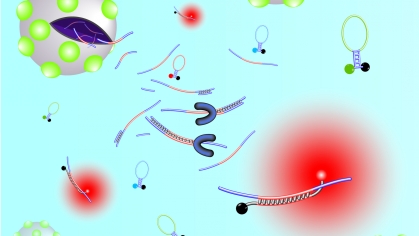Rutgers Receives $4.2 Million to Develop Center for Alzheimer’s and Dementia Research in Asian and Pacific Americans

The first to receive federal funds to research this aging population
The Rutgers Institute for Health, Health Care Policy and Aging Research, working in collaboration with New York University (NYU), has received more than $4.2 million in funding from the National Institutes on Aging (NIA) to develop the Resource Center for Alzheimer’s and Dementia Research in Asian and Pacific Americans (RCASIA).
The center’s goal is to use the five-year grant to advance behavioral, social and economic research related to Alzheimer’s disease and other dementias especially in older Asian and Pacific Americans.
“RCASIA is uniquely positioned to support the development of promising early career scientists to engage Asian and Pacific American communities, and to curate validated tools important in the detection of Alzheimer’s and dementia in older Asian and Pacific Americans who are often underserved,” said William Hu, interim director of the Center for Healthy Aging at the Rutgers Institute for Health, Health Care Policy and Aging Research.
RCASIA is the first NIH-funded center focused on Alzheimer’s and dementia research in New Jersey and the first NIA Resource Center for Minority Aging Research (RCMAR) focused on Alzheimer’s and dementia in Asian and Pacific Americans.
The center aims to:
- Increase scientists underrepresented in Alzheimer’s and dementia research through innovative models of mentoring and community engagement
- Advance the impact of pilot studies in older Asian and Pacific Americans through data sharing
- Serve as a national resource for linguistically and culturally tested and validated tools to assess cognition, function and care for Asian and Pacific Americans with Alzheimer’s and dementia
New Jersey and the New York metropolitan area has one of the largest Asian and Pacific American populations in the country. Although Alzheimer’s and related dementias are the fastest growing non-COVID related causes of death in the aging, language and cultural barriers have resulted in a limited understanding of how Alzheimer’s and dementia manifest in Asian Americans, according to Hu.
“This center will collaborate with researchers, social and healthcare providers, and policy makers to address the health and care needs of older Asian and Pacific American adults affected by Alzheimer’s disease and related dementias,” said Bei Wu, Dean’s Professor in Global Health and vice dean for research at the NYU Rory Meyers College of Nursing.
She and Hu, an associate professor of neurology and chief of cognitive neurology at Robert Wood Johnson Medical School, will serve as principal investigators. They said the center will build upon the existing strengths of the Rutgers-NYU Center for Asian Health Promotion and Equity and the NYU Center for the Study of Asian American Health, as well as on-going Alzheimer’s-related research at Rutgers, including the Chinese Older Adults Study and the South Asian Aging Brain Study.
"Rutgers Health is proud to be at the forefront of groundbreaking Alzheimer's and dementia research in Asian and Pacific Americans, leading the way, in collaboration with valued partners, as the home of the first NIH-funded center in New Jersey dedicated to unraveling the mysteries of these devastating diseases,” said Brian L. Strom, chancellor of Rutgers Biomedical and Health Sciences. “Together, we are committed to making a meaningful impact through research and education at the Resource Center for Alzheimer’s and Dementia Research in Asian and Pacific Americans.”
The center’s other partner institutions include NYU Grossman School of Medicine, Northwestern University and The City University of New York. The new center will collaborate with Alzheimer’s Disease Research Centers at NYU and the University of Pennsylvania to advance its educational and research missions.



